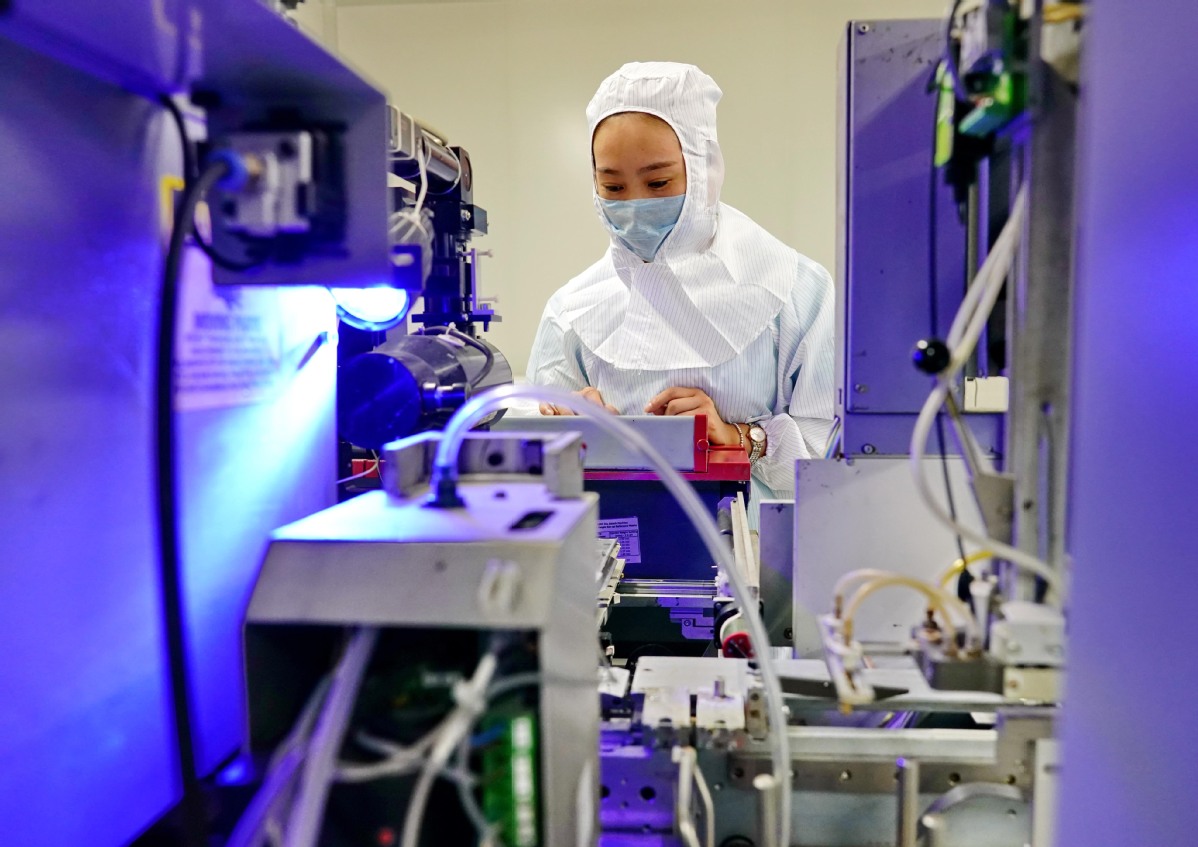
A technician works at the workshop of the carmaking-related chip production company in Qinhuangdao, Hebei province. [PhotoXinhua]
Leading Chinese automakers have been more resilient than international marques in the country amid chip shortages and rising materials costs, said Fitch Ratings.
Chinese companies like Great Wall Motors and Changan reported gross profit gains in the first half this year because of their greater flexibility to choose alternative suppliers, product mix upgrades and cost control, said the firm in a report earlier this week.
Local Chinese marques saw their wholesale volume grew 23 percent year-on-year in the second quarter.
The market share of Chinese brands improved by 6.6 percentage points to 43.1 percent in July, partly driven by strong electric car sales, said Fitch.
International brands and their joint ventures are doing a lackluster job.
SAIC Group’s income from its joint ventures dropped 26 percent year-on-year in the second quarter this year because of severe falls in their production and sales.
In particular, income contribution from SAIC-Volkswagen fell by 58 percent year-on-year in the first half, due to an 11 percent revenue drop and a 5 percentage point fall in net profit margin.
The net profit margins of many Sino-foreign joint ventures narrowed to less than 5 percent or were negative in the first half of 2021, except for those of leading luxury brands and Sino-Japanese manufacturers.
The global shortage of chips used in auto manufacturing is likely to be prolonged by supply-chain disruptions following the increase in Covid-19 infections in Malaysia in August 2021.
Fitch expects joint ventures to remain more vulnerable to the stressed chip value-chain in the second half, as their global parents are more likely to priorities chip allocation to other regions.
China’s passenger vehicle market as a whole is expected to stay weak in the third quarter this year. Fitch has revised down the 2021 growth forecasts for passenger vehicle wholesale volume to around 5 percent from high-single digits.
Even some outperforming joint ventures have reduced production since June due to tighter chip supplies, which is likely to drag down their sales and profitability in the second half this year, said Fitch.
The firm said Honda’s local production in China plunged 52 percent year-on-year in July and Nissan saw a 27 percent fall in the same month.
